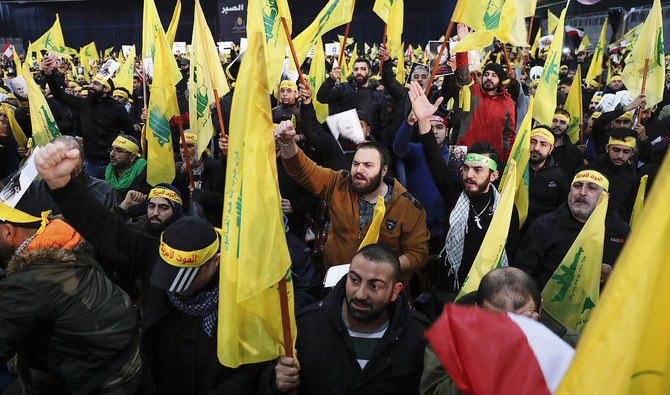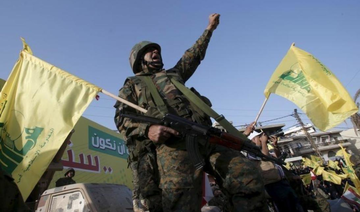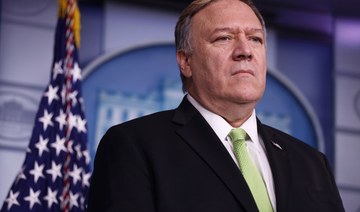LONDON: Friday’s move by the British Treasury to freeze all Hezbollah assets puts more pressure on the Iran-backed Lebanese group, which is being squeezed at home and overseas.
Following the March 2019 assertion by the British government that it was “no longer able to distinguish between their already banned military wing and the political party,” this latest move means anyone conducting financial transactions with Hezbollah could face prosecution.
Prior to Friday’s announcement, only the military wing of Hezbollah — not its political arm — had been subject to asset freezing by the British government.
The announcement by the British Treasury was quickly followed by a call from US Secretary of State Mike Pompeo for “all nations” to follow the British and clamp down on Hezbollah.
The UK joins the US, Japan, Canada and other countries in blacklisting the entire organization.
On Monday, Honduras, Colombia and Guatemala followed suit, adding Hezbollah to their lists of officially designated terrorist organizations.
The British announcement comes amid an upsurge of anti-government protests in Lebanon. Alongside the civil unrest, the country is facing a deepening economic crisis, with experts fearing a collapse of the Lebanese economy.
Matthew Levitt, director of the Counterterrorism Program at the Washington Institute, said the Treasury’s move has the potential to make a real impact on Hezbollah’s operations.
“The move empowers British intelligence and law enforcement to open investigations any time they gather information that an individual or entity is raising funds for Hezbollah, period,” he told Arab News.
“This is a group that engages in covert and overt activity. You now no longer need to prove the money is going to the covert side of the organization.”
The move comes at a time when the world is becoming more aware of the terrorist and criminal activities that Hezbollah is engaged in, Levitt said.
He pointed to its 2015 stockpiling of 3 tons of ammonium nitrate in north London, the imprisonment on terrorism charges of Ali Kourani, a New York-based Hezbollah “sleeper” agent, and major money-laundering activities as the types of criminal enterprise that this approach by the Treasury could help prevent.
However, the impact on Hezbollah depends on the way the asset freeze is implemented. If it is done effectively, Levitt said, it will dissuade Hezbollah from using the UK as a base to support its criminal activity.
The move also comes at a time when the group is under increasing financial stress, both in Lebanon and in the money it receives from Iran, which is facing its own deteriorating economic situation.
Chris Doyle, director of the Council for Arab-British Understanding, expects European powers to face increasing pressure to follow the UK and clamp down on Hezbollah’s financing in their own countries.
He called the original distinction between Hezbollah’s military and political arms a “very convenient ruse,” and said the Treasury was always going to make this move, pointing to the deteriorating relations between the UK and Iran.
“There was obviously going to come a time when we were going to freeze their assets and make it illegal to do financial business dealings with Hezbollah,” Doyle told Arab News.
The move, he said, comes in the wake of six months of increased tensions between Britain and Iran, including the dramatic seizure of a British tanker over the summer.




























